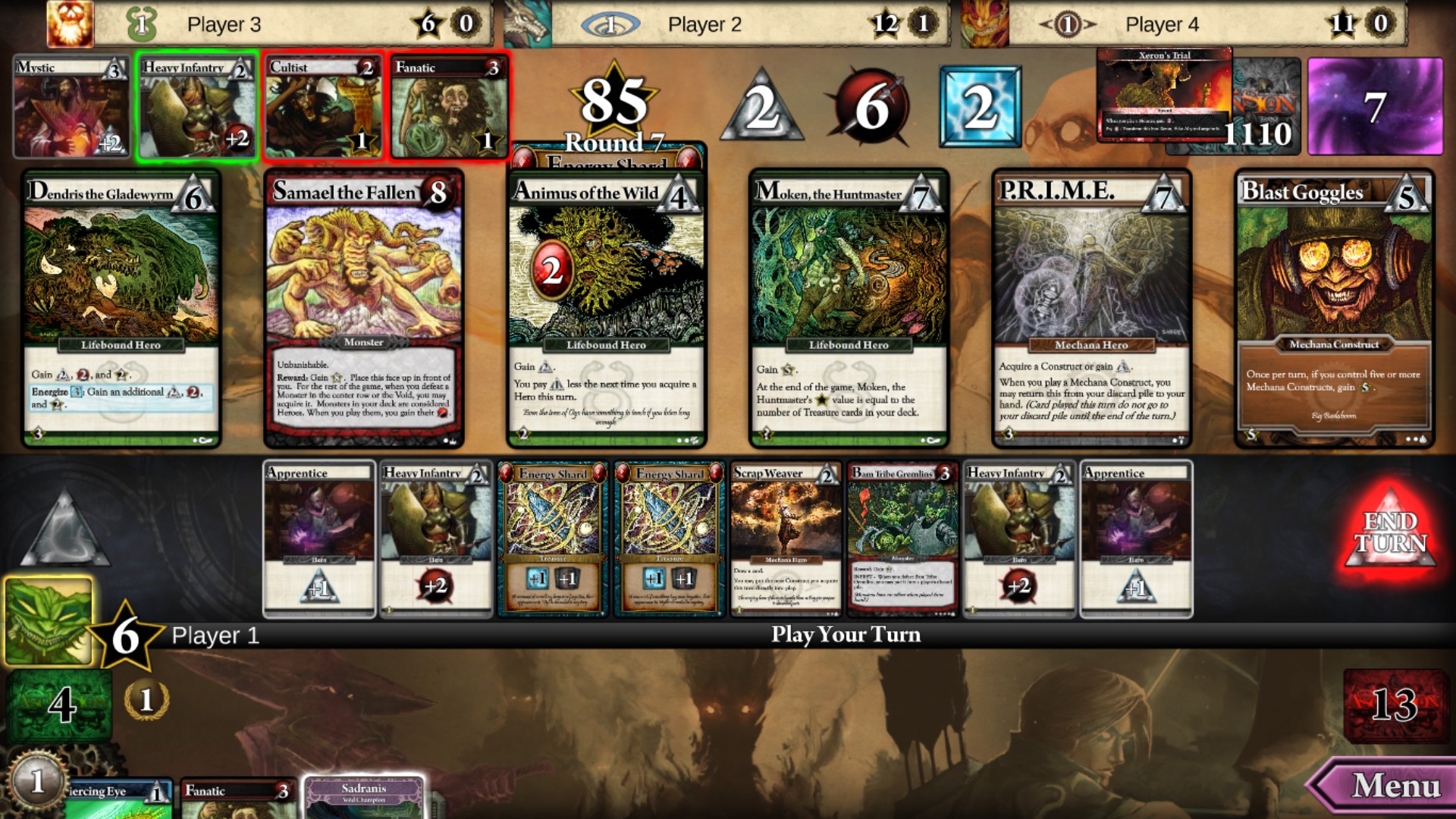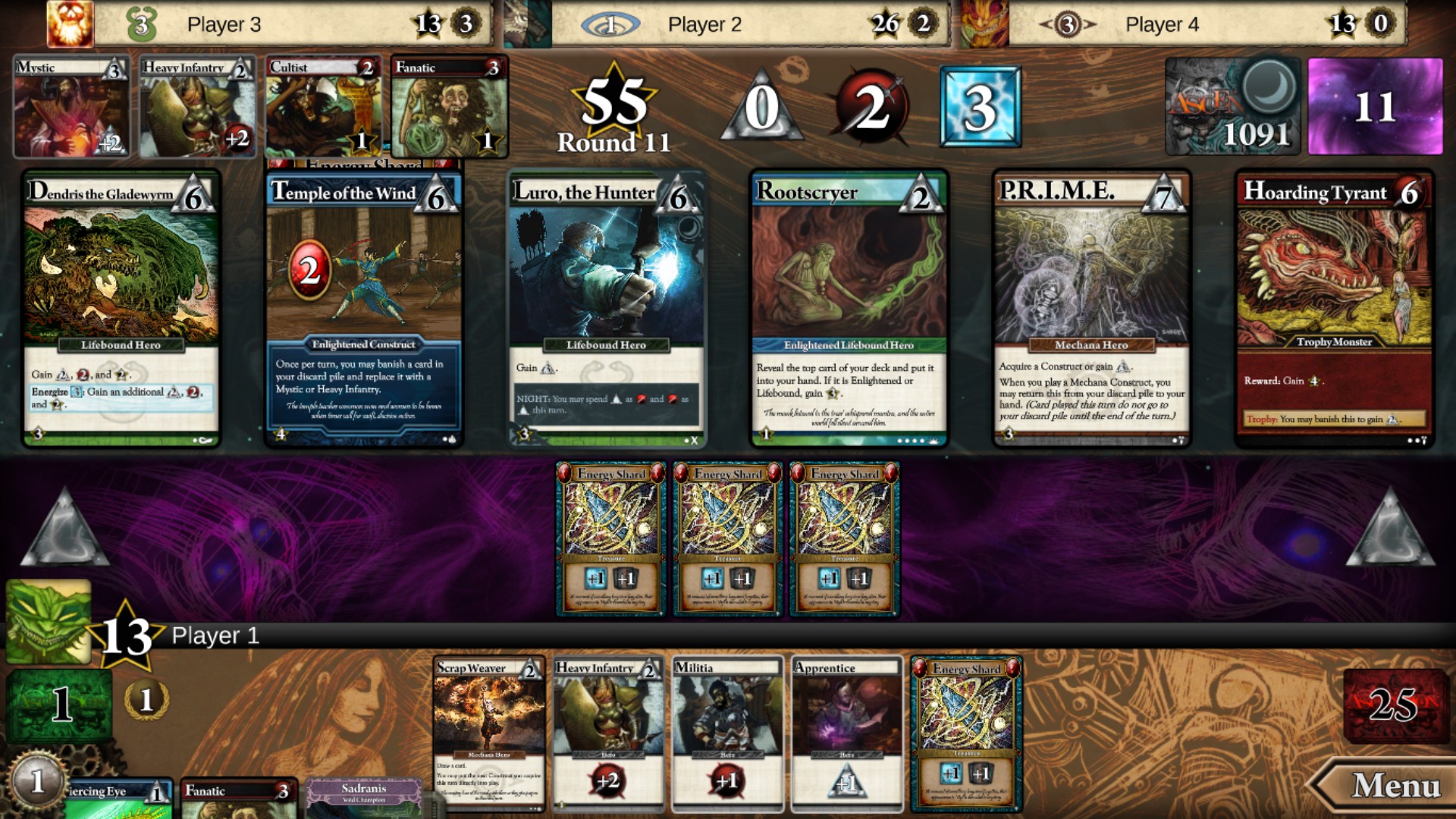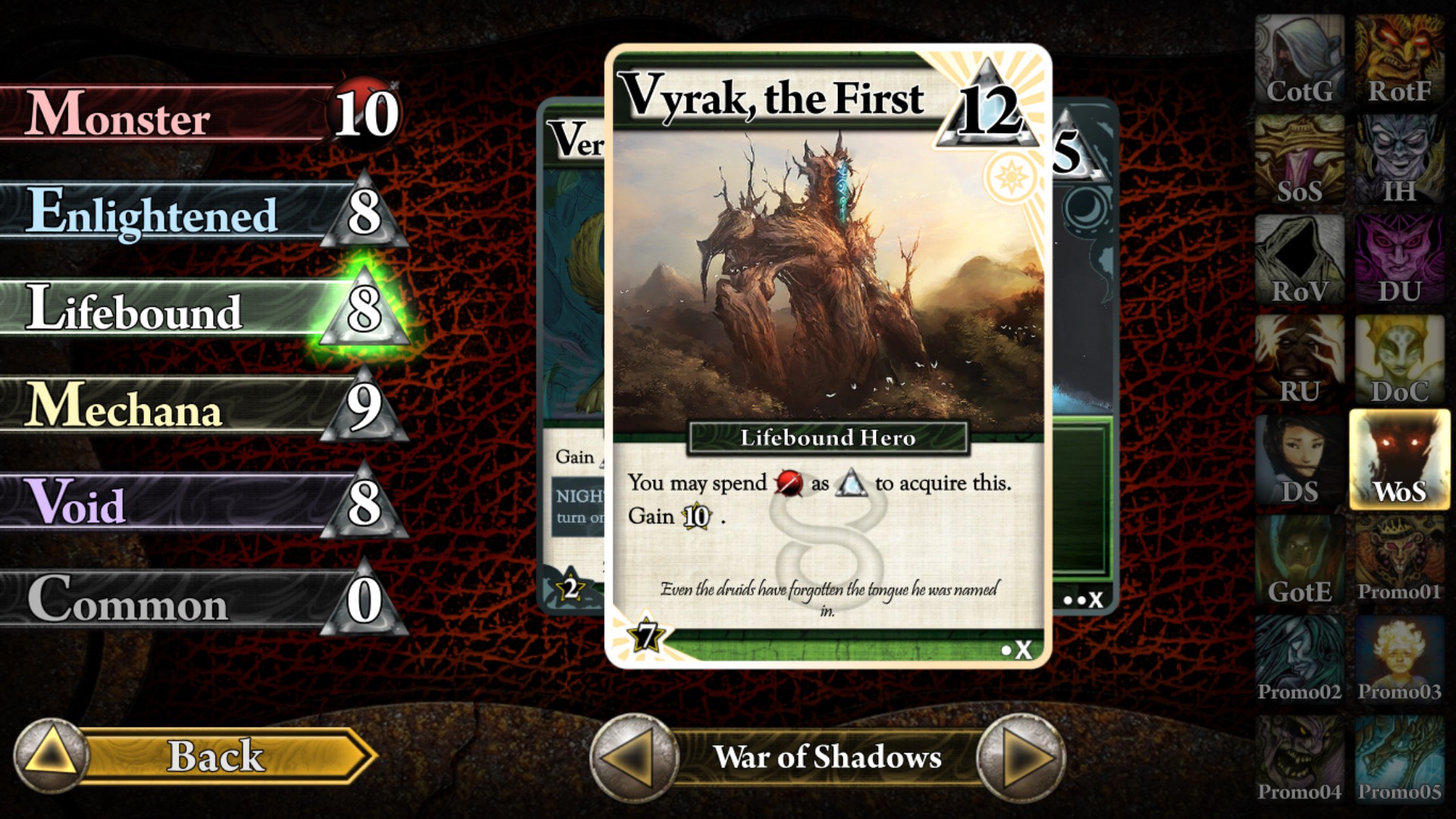Ascension is a great intro to deckbuilding games
Revisiting this classic card game in its refined Steam version retaught me the fundamentals of deck building.

Since bursting into gaming in 2008 with Dominion, the deckbuilding genre has grown wildly, eclipsing any expectations one might have had at the time. Deckbuilders take the nominally out-of-game mechanic of competitive card games, building your deck, and make it the focus of the game itself. Deckbuilding, though, has moved on a lot since 2008. We’re now in the era of the rising roguelike deck builder with wonderful games like Slay the Spire. They’re complex games with deep feature sets and a really specific set of skills to master. Modern deckbuilders are cool, complex games, but they don’t drill down into teaching you the fundamentals of the genre as a whole. I think you need those fundamentals to appreciate the good design work of the more modern games.
For that, you have to look at older games—and on PC, one of the best older games you can play is the digital version of 2010's Ascension. Once plagued with lackluster graphics options, the port has recently been updated with a good full screen mode. It includes nine expansions to the base game, to boot, with a tenth now available as DLC. Ascension was a blockbuster deckbuilder when it released on tabletop in 2010, and the game’s design has only gotten better, more interesting, and more varied since then.
In Ascension you’re one of several rival commanders trying to seal away evil forces before they overwhelm the material world. Your victory is assured, but whoever seals away the most evil fastest is the winner.

As you refine your deck over the course of the game you recruit champions and deploy constructs—champions are added to your deck and drawn over and over, while constructs are played once and provide ongoing benefits. Cards provide you with one of two resources: red for killing monsters, blue for acquiring new cards. Monsters and cards are in a center row, accessible to all players, and as they’re acquired or killed replacements come out of one big deck. Most champions, other than the basic ones, might do something else like allow you to draw cards, get victory points, or remove cards from your deck. Each turn, you draw cards out of your deck and play them to these few things. That’s it. That’s the game.
It’s laughably simple compared to complex, evolved deckbuilders you see pop up every year now. That, I will argue, is an incredibly good thing. It’s just a deckbuilder—that’s all you do. Playing Ascension lets you learn and truly understand basic strategies of deck building: Managing your card pool, whittling down your deck size, building an overall strategy, and ensuring each turn provides strong resource balance. It also lets you learn these things absent the complexities of other games. Slay the Spire is great, but you’re worrying about a lot of extra mechanics on top of just managing your deck. It’s not the ideal environment to learn the basics of the genre.

That’s not to say the strategies in the game are simple, there are, after all, nine expansions included in the Steam version of the game, with a 10th now for sale. Even in the base card pool alone you’ve got a variety of interesting strategies. You can learn about balanced deckbuilding techniques, ones that keep your options open for specializations down until the end of the game. I’m partial to ultra-lean strategies, ones that focus on purple Void cards to remove any extraneous fluff from your deck, ensuring you always get the cards you want each turn. You can try shoot the moon strategies, like Mechana constructs, that focus on getting a specific set of cards in order to build an unstoppable combo machine.
Revisiting Ascension helped me realize how varied the deckbuilding genre had become, and it let me really learn more about the basics of the genre as a whole. I’d heartily recommend it to those new to deckbuilding games—and card games in general—as tutorial in genre basics.
Keep up to date with the most important stories and the best deals, as picked by the PC Gamer team.
Jon Bolding is a games writer and critic with an extensive background in strategy games. When he's not on his PC, he can be found playing every tabletop game under the sun.

